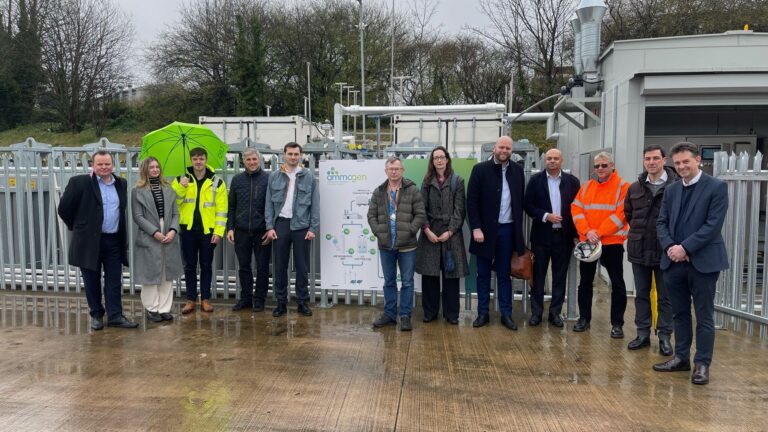
The innovative project will use ammonia as a vector for transporting hydrogen globally, developing a novel ammonia cracker and purification technology to convert ammonia to hydrogen.
The project also aims to position ammonia cracking within the UK political thinking through demonstration and crystallise follow-on opportunities to unlock trade corridors between the UK and the emerging global hydrogen market. In collaboration with the Department for Energy Security and Net Zero, Gemserv, H2SITE, Equans, YARA, and the University of Birmingham, the Ammogen Consortium team are dedicated to driving forward hydrogen fuel supply chains in the UK and worldwide.
Transformative technology
This transformative technology is an important piece in the hydrogen supply chain and provides an important link for meeting the growing global hydrogen demand using ammonia as a medium for shipping hydrogen.
Speaking about the launch, Alex Goody, Chief Executive of consortium lead Gemserv said: “We are delighted to be part of the Ammogen consortium, working with DESNZ. This project is about finding solutions for the transportation of Hydrogen across vast distances, essential in underpinning the Hydrogen economy. Ammogen shows that ammonia can be part of the solution.”
On the subject of the core technology, Jose Medrano, technical director of H2SITE commented: “We are proud of having designed and constructed the largest ammonia cracker utilising membrane reactor technology to produce fuel cell grade hydrogen. Ammogen project is a steppingstone for H2SITE, as it validates the fundamental technology we’ll use to scale to tons per day ammonia cracking in the next 2 years.” The Ammogen project, which aligns with the country’s net-zero target policy, was selected through a competitive UK government funding scheme to develop a £6.7M project, which Gemserv developed and are leading, utilising the expertise of key technology providers, Ammonia supply chain and EPC (Engineering-Procurement Construction) organisations